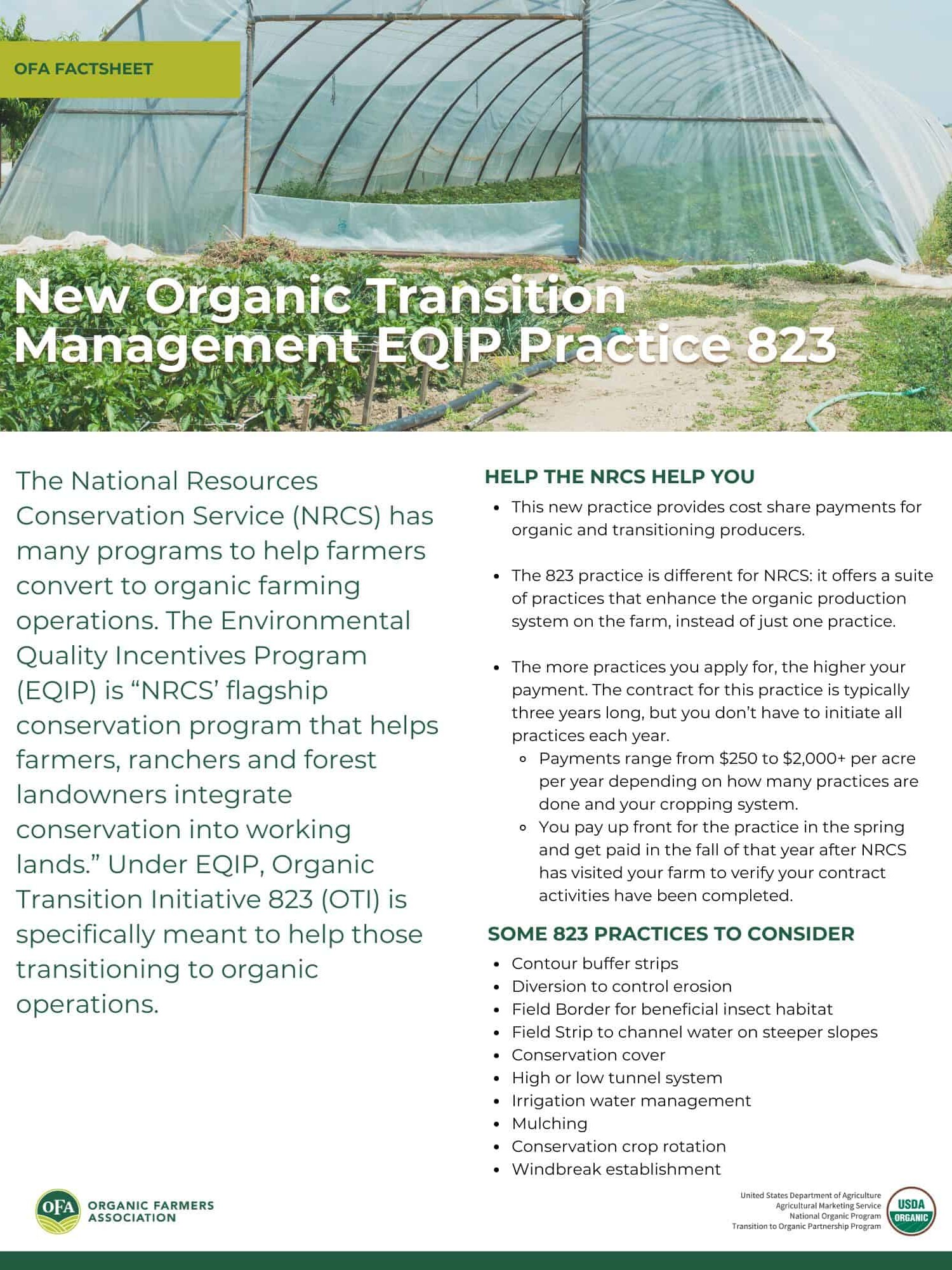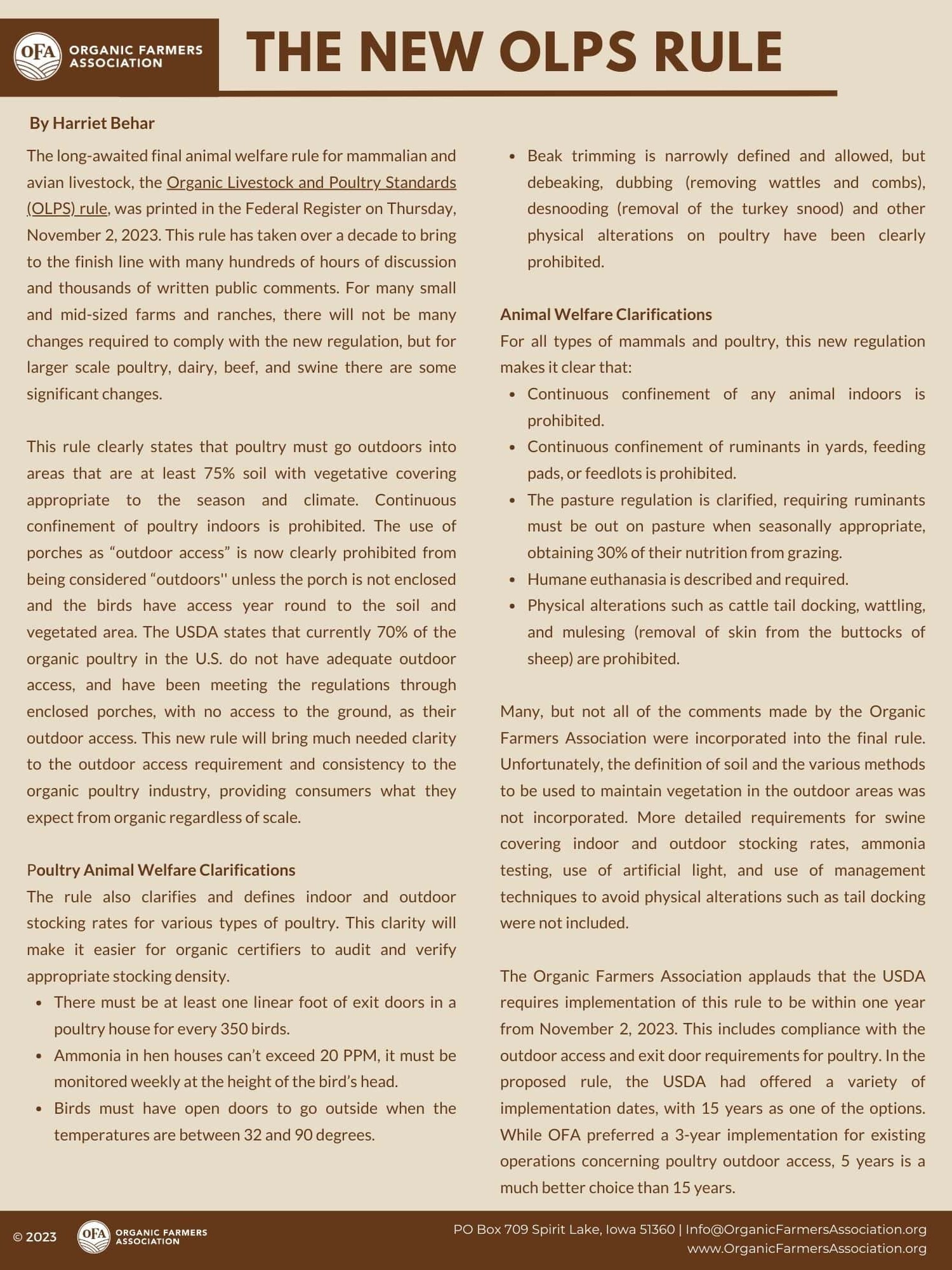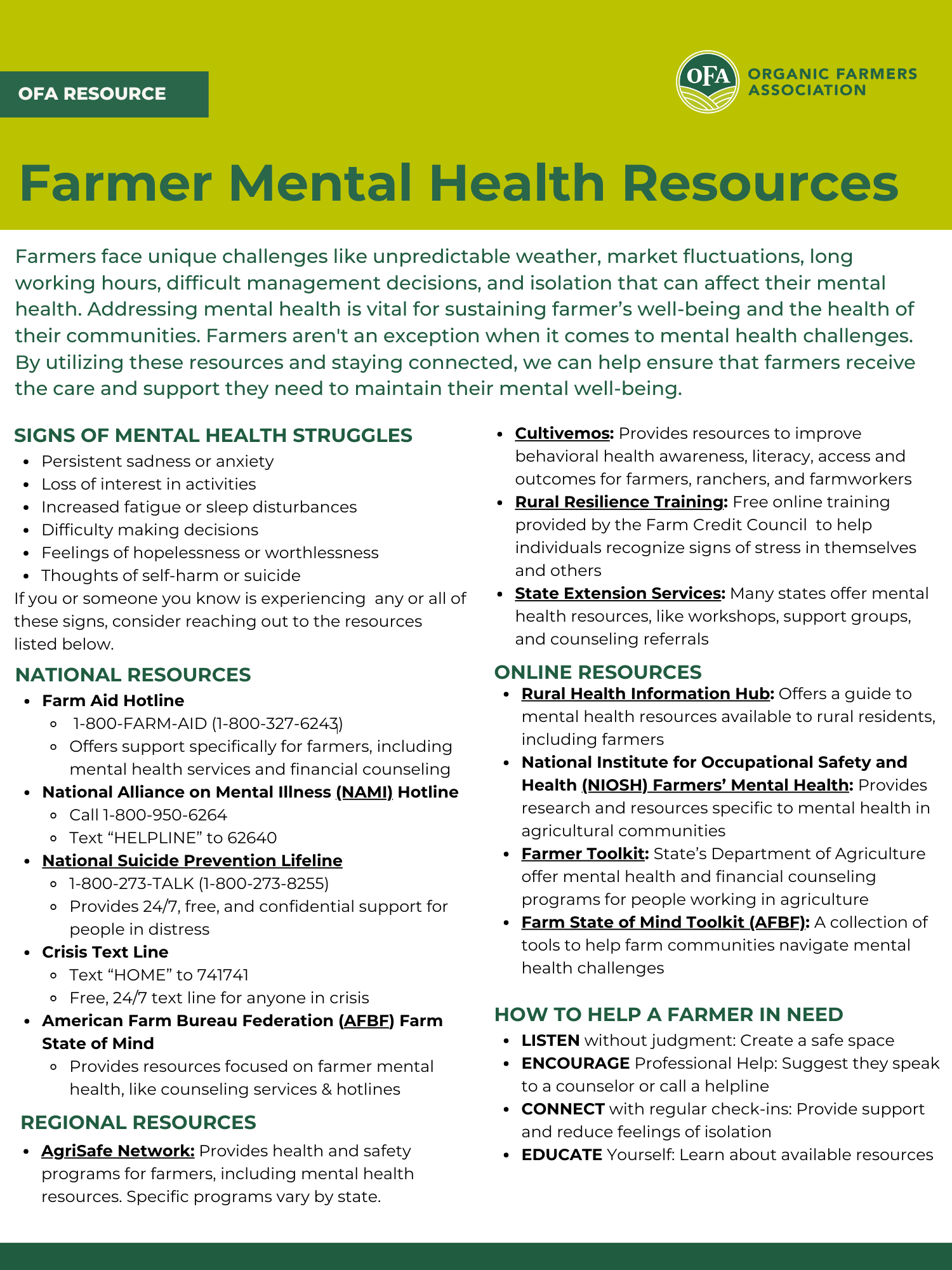Organic Factsheets
Download OFA’s recent factsheets to get the most relevant information on current organic farming topics and use these factsheets to communicate key points.
Education Factsheets
Policy Factsheets
Looking for more organic farming policy information? Find OFA’s policy positions and more here.



















